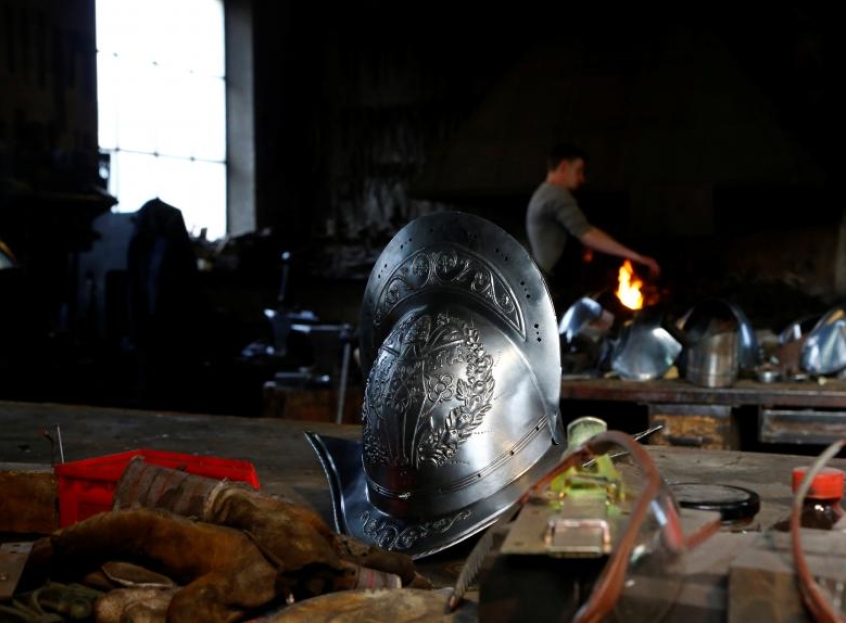
The Swiss Guards have unveiled the new 3D printed plastic helmets that will eventually replace their current ones made of metal in an effort to make the guard members more comfortable while providing protection for the pontiff.
The new helmets were presented to the public during a press event in Rome on Friday, ahead of the guards' annual swearing-in ceremony on Sunday.
According to Crux, the PVC helmets will bear the coat of arms of Pope Julius II, who established the Swiss Guards in 1506.
The new headgear, however, will not be a part of the guards' outfits until 2019. Swiss Guard spokesman Sgt. Urs Breitenmoser said that the guards are still trying to find sponsors to pay for the helmets, which cost about €880 (US$957) a piece.
The idea for 3D printing the helmets was introduced by layman Peter Portmann, who was described as a "friend of the Swiss Guards" at the Friday event.
Portmann had reportedly started an informal crowdfunding campaign to raise money for the helmets, which cost roughly half the price of the old ones.
The PVC helmets will weigh far less than those made of metal, but they will not protect guard members against serious threats as the headgear is purely ceremonial. It will reportedly be resistant to UV rays to protect the guards from extreme heat.
Religion News Service said that 32 new recruits joined the ranks of the guards on May 6, which marks the day when 147 guardsmen died protecting Pope Clement VII during the Sack of Rome in 1527.
In order to qualify as a Swiss Guard, the applicant has to be male, Catholic, single, between the ages of 19 and 30, at least 5'8" and a Swiss citizen.
All the guards serving at the Vatican have received basic Swiss military training, and are skilled in unarmed combat and small arms.
Commander Christoph Graf acknowledged that not all of members attend Mass regularly, so a part of his mission involves evangelizing new recruits.
"If we only accepted guards who go to Mass every Sunday, who receive the sacraments regularly, the army wouldn't exist anymore," he said, according to Crux.
"We need to give the young men the possibility of growing in their faith. I believe that with the closeness to the Holy Father, those who have an open heart are able to discover the faith. It's part of our job, as officials, to be witness, not to be afraid to talk about our faith, something that is no longer done in Switzerland," he added.













